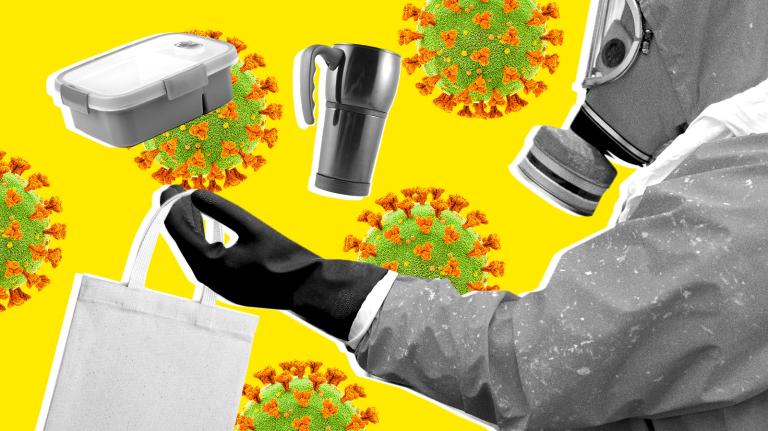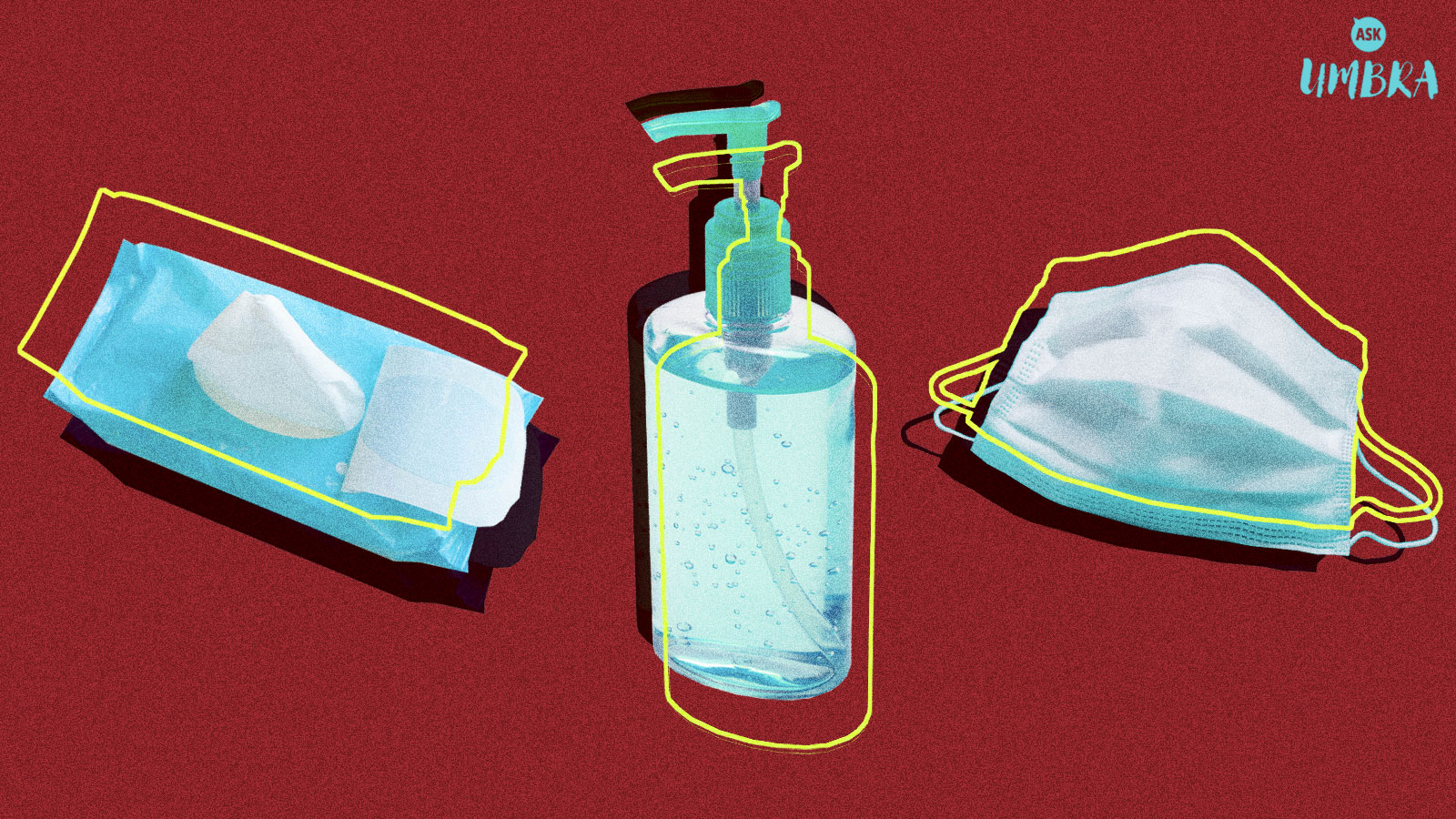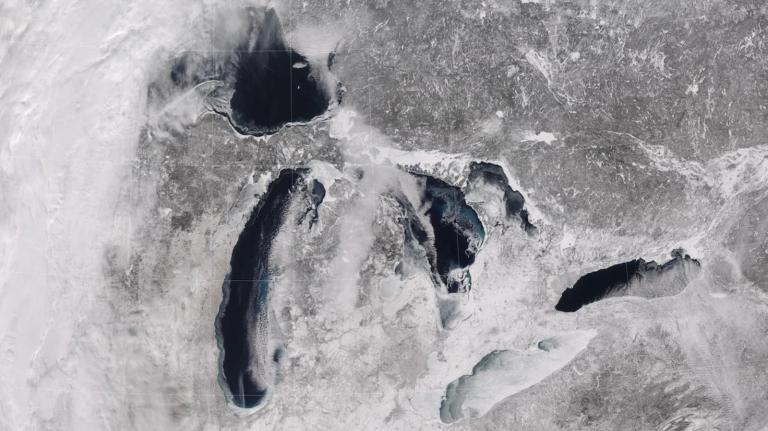Q. Dear Umbra,
Should I feel guilty about buying so much plastic-wrapped and single-use stuff for this quarantine nightmare?
–Stuck Here Using Throwaways Instead of … Not
A. Dear SHUT-IN,
The rapid, worldwide spread of coronavirus is certainly making everyone a bit more neurotic than usual. There’s so much uncertainty and suspicion and airborne phlegm floating around — it’s like the Red Scare: Allergy Season Edition, except there’s actually something concrete to be afraid of. It’s also kind of like climate anxiety, in that there’s ample opportunity for dwelling and fear and self-doubt, especially if you’re suddenly alone in your apartment for hours every day.
COVID-19, the disease caused by this coronavirus, is a real threat to the elderly, people with immune disorders, and those who are already ill. And despite the reassurances of both the president of the United States and the director of Pittsburgh’s annual St. Patrick’s Day parade that everything is chill, the vast majority of public health professionals say it’s best to be vigilant to prevent its further spread. That means washing your hands, trying not to touch your face, and, yes, coughing into single-use tissues and then throwing them away.
And yet, as my colleague (and Umbra substitute!) L.V. Anderson wrote yesterday, the widespread perception that new, single-use products are somehow more hygienic compared to their reusable counterparts is not necessarily accurate. But due to coronavirus concerns, major chains like Starbucks and Dunkin’ Donuts have already paused the use of reusable and “for here” containers in their coffee shops in favor of single-use receptacles. So unwarranted or not, most of us probably WILL end up having to use more single-use products for the time being.
So now you, SHUT-IN, have presented a whole fresh new hell: Should we add to our public health fears a sense of guilt over the fact that plastic proliferation is its own environmental catastrophe?
Let’s spend a moment addressing the construction of your original question, “Should I feel guilty…?” You are essentially asking my permission to alter your priorities. People send me questions that start with “should I feel guilty” pretty much once a day, because there are probably a hundred things that anyone living a relatively standard modern life has to feel guilty about at any given moment. That’s what happens when your society is built on a litany of human rights and environmental violations! And every day we make little micro-decisions based on what we think is most important to feel guilty about.
For those unfamiliar with the single-use struggle, here’s a quick rundown of why might feel guilty about all this plastic: Recycling doesn’t capture and effectively repurpose nearly as much of it as we’ve been lead to believe, and trillions and trillions of tons of it ends up floating around and contaminating ecosystems and infiltrating food chains all across the planet. There’s also the fact that several very common building blocks of plastic materials are known endocrine disruptors. And also the part where plastics are made from fossil fuels, which cause global warming. It’s a big old mess.
But I had a quick chat with Rolf Halden, professor of health engineering at Arizona State University, to put into context any self-flagellation you might be experiencing about buying a plastic-swaddled 24-pack of toilet paper. While he’s enthused that people are critically thinking about how much plastic they consume, whatever’s being bought in the name of COVID-19 prevention “is a drop in the bucket compared to all that we needlessly consume,” he said. “I think the answer is very clear: Don’t compromise health to save a little bit of plastic.”
You may have heard about an approach called “flattening the curve.” It’s an epidemiological trend that compares the trajectory of a pandemic with and without basic preventative measures; in the former case, you have fewer deaths. Those measures include things like staying home when you feel sick, washing your hands a lot, not touching your face, etc. (They don’t include stuffing an entire superstore’s supply of face masks into your linen closet.)
So yes, maybe you have to buy more things wrapped in plastic than you normally would because the bulk bins at the co-op feel a little riskier than normal. You don’t normally buy Clorox wipes, preferring homemade alternatives, but all of a sudden they seem crucial. Starbucks will not accept your reusable mug. You are plowing through all those little travel-size hand sanitizer bottles to keep germs at bay. Guess what: You’re being responsible with regard to the lives of other people! There’s a pandemic going on! This is a good priority to have!
There are, of course, little adjustments you can make, if you’re feeling really committed to plastic reduction — buying the largest possible units of things that come in plastic containers is the most efficient use of packaging, and then you can dispense sanitizer from some massive jug into little jars or whatever you want to carry around with you. (Good luck tracking it down, I guess?) There’s an argument for simple-ass bar soap, as opposed to its plastic-packaged antibacterial liquid counterpart, to be the best defense against viral infection. But the main question to ask yourself is: Is there a chance that what I’m doing right now is turning me into a vector that could endanger other people’s lives?
I say that you do have an ethical responsibility to do your best to protect others from infection. You also have an ethical responsibility to care for the environment as best you can and do what you can to deal with climate change. But fretting about the essentially negligible weight of extra plastic on your consumer conscience obscures the fact that there is an entire industry, lobbying machine, and legislative network that is committed to putting a ton of plastic into the market in many, many different forms even when we’re not in the middle of a pandemic. I’d also argue that what you do to prevent becoming a disease vector and harming others has a greater potential positive impact than what you’d otherwise do to limit your consumption of plastic for a couple of months.
And if you want to be psychotically optimistic, there are arguments for how other preventative behaviors put in place during this coronavirus outbreak have had a positive climate impact! (No, I am not talking about human death.) Mass quarantine in China has greatly reduced air pollution, which is responsible for an estimated 1.1 million annual premature deaths in the country. Shelf-stable, climate-friendly foods like beans and oat milk are really, really popular all of a sudden. And it’s possible that companies that are being forced to let employees work remotely due to virus containment might actually stick with these systems after the disease dies down, reducing emissions associated with driving or flying folks around.
Anyway. Everything feels crazy, and it’s completely OK if you also feel crazy, but maybe don’t take on the weight of the global plastic pollution problem and coronavirus at the same time. To answer your question very, very succinctly: No, you shouldn’t feel guilty.
Absolvingly,
Umbra




